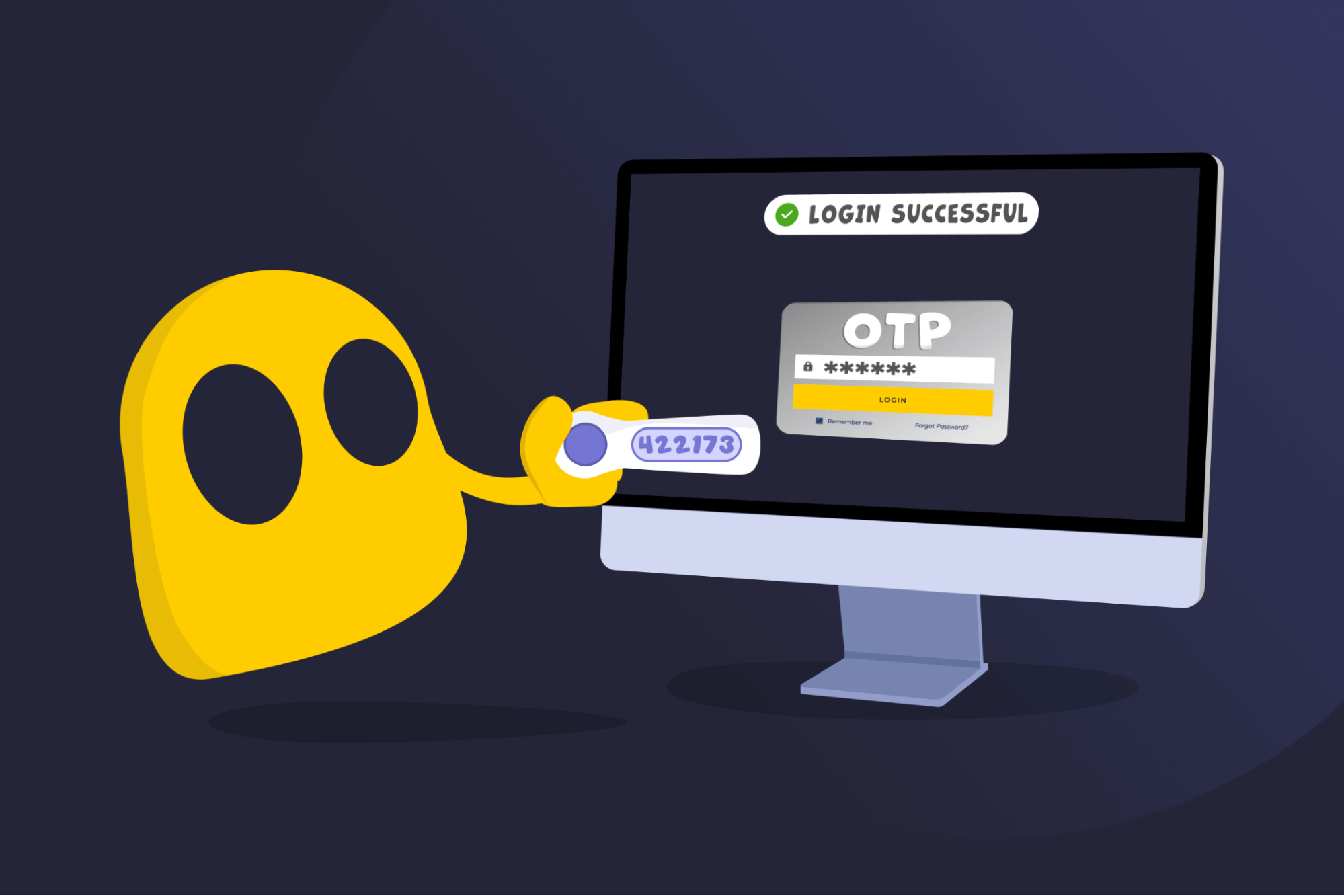VPN Token

VPN Token Definition
A VPN token is a physical device or an app that generates a one-time password (OTP) to verify a user’s identity when logging into a VPN. It adds an additional layer of security, making it much harder for cybercriminals to breach user accounts. Even if a malicious actor compromises someone’s password, they can’t access the VPN without the token.
How VPN Tokens Work
When a user logs in to a VPN, they normally first enter their username and password. With a VPN token, they must also provide an OTP. This code is generated by a token and is valid for only a short period of time or a single login attempt. The VPN server checks the code and grants access only if it’s correct.
Some VPN tokens may integrate biometric authentication, such as fingerprint or facial recognition, increasing security even more. Other VPNs may also issue session tokens after login to keep connections authenticated without requiring users to re-enter their credentials.
VPN Token Types
- Hardware tokens: Small devices that generate or store OTP codes, such as smart cards, key fobs, or USB drives.
- Software tokens: Mobile, desktop, or web-based apps that generate OTPs, like Google Authenticator, Microsoft Authenticator, or custom VPN apps.
- SMS tokens: Codes that are sent to users’ phones via text messages. Considered less secure since SMS could be intercepted.
Read More
FAQ
A VPN token is a portable device or app that generates a one-time password or code, which is used to access a VPN. It protects accounts because it adds a second verification method when logging in.
A VPN soft token is a software-based security token that’s usually available for smartphones, computers, or web browsers. It generates one-time codes or passwords that allow users to verify their identities when logging in. VPNs may develop their own software tokens or use third-party solutions, like Google Authenticator or Microsoft Authenticator.
A VPN hard token is a small, portable physical device that generates one-time passwords (OTPs), which users need to verify their identities when accessing a VPN. People may use USB drives, smart cards, or key fobs as hardware security tokens.
 45-Day Money-Back Guarantee
45-Day Money-Back Guarantee